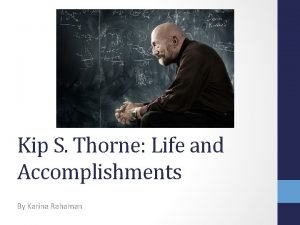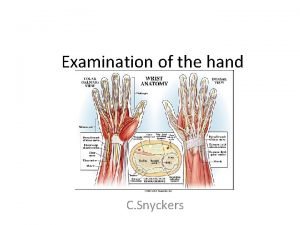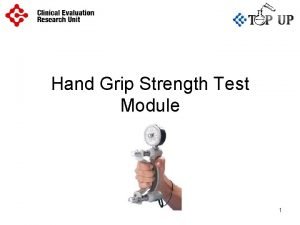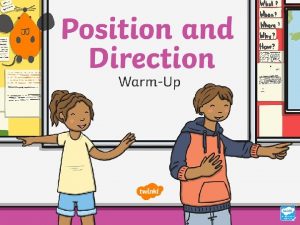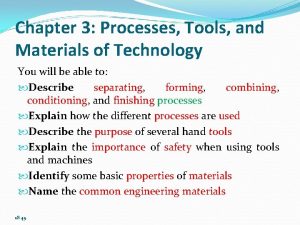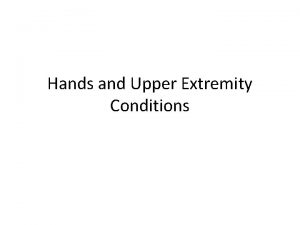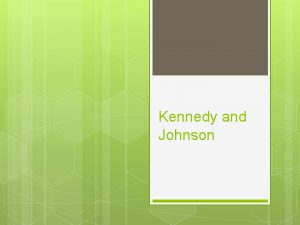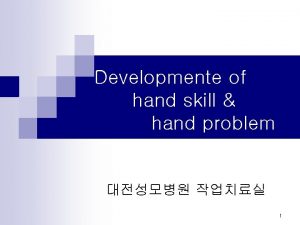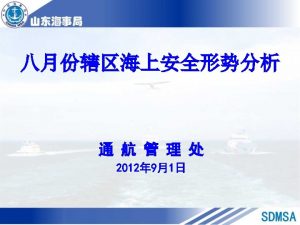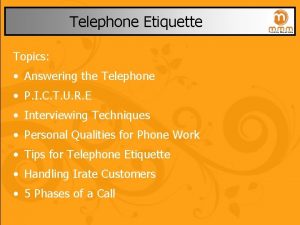Thorne v Kennedy Derek Hand Telephone 02 9151








![Duress - Nettle J • Nettle J suggests (at [71]) that Karam’s rejection of Duress - Nettle J • Nettle J suggests (at [71]) that Karam’s rejection of](https://slidetodoc.com/presentation_image_h2/9b4e021567168335e8ac17196f53936b/image-9.jpg)





- Slides: 14


Thorne v Kennedy Derek Hand Telephone (02) 9151 2938 0416 147 608

Section 90 K(1)(e) “Void, voidable and unenforceable” • Duress avoids a contract at common law because there was no true consent – that is, because the will of the other party was overborne by unlawful pressure. • Today, duress is confined to the common law: ANZ v Karam (2005) 64 NSWLR 149 • Equity deals with cases where pressure is exerted, in a lawful but unconscionable way, as either: • undue influence or • unconscionable conduct

A refresher on equity • Equity – in its most general sense, means fairness in the resolution of disputes through the application of good conscience • Equity acts on the conscience – Spry has observed that its principles have a distinctive ethical quality, reflecting as they do the prevention of unconscionable conduct

Commonwealth Bank of Australia v Amadio Deane J (at 474 -5): “The equitable principles relating to relief against unconscionable dealing and the principles relating to undue influence are closely related. The two doctrines are, however, distinct. ”

Undue influence • The focus of enquiry is on the quality of the consent of the weaker party. • Was that judgment or consent impaired by, for example, coercion, pressure or concealment? • Did the influence prevent the weaker party from making an independent and informed judgment?

Unconscionable conduct • The focus of enquiry is on the improper conduct of the stronger party. Is s/he taking advantage of the other person’s special disadvantage or disability in circumstances where it is not consistent with equity or good conscience that s/he should do so? • What’s a special disadvantage? Relevant factors include poverty, sickness, age, infirmity of body or mind, drunkenness, illiteracy or lack of education, lack of assistance or explanation where such is necessary: Blomley v Ryan (1956) 99 CLR 362 at 405, per Fullager J • ‘Ink on the wedding dress. ’ Unconscionable conduct? Undue influence? Duress?

Duress • Duress avoids a contract at common law because there was no true consent – that is, because the will of the other party was overborne by unlawful pressure. • Today, duress is confined to the common law: ANZ v Karam (2005) 64 NSWLR 149
![Duress Nettle J Nettle J suggests at 71 that Karams rejection of Duress - Nettle J • Nettle J suggests (at [71]) that Karam’s rejection of](https://slidetodoc.com/presentation_image_h2/9b4e021567168335e8ac17196f53936b/image-9.jpg)
Duress - Nettle J • Nettle J suggests (at [71]) that Karam’s rejection of illegitimate pressure by lawful means may not be “doctrinally valid” and says there is much to be said for the view that it would better accord with equitable principle if the test of illegitimate pressure were whether the pressure goes beyond what is reasonably necessary for the protection of legitimate interests. (And footnotes Edelman and Bant’s Unjust Enrichment textbook in support of that position!) • But before departing from Karam, there would need to be “detailed argument and deep consideration of the ramifications” of so doing. And that did not happen here.

Unconscionable conduct but not undue influence – Gordon J • Draws a distinction between unconscionable conduct and undue influence by an important point of principle - the relationship between undue influence and the judgment of the affected person. That is, the quality of the consent of the weaker party. • Ms Thorne’s capacity to make an independent, informed and voluntary judgment about whether to marry on Mr Kennedy’s terms was not affected, and her will was not overborne. So there was no undue influence. [80] • But she was unable in the circumstances to make a rational judgment to protect her own interests, and Mr Kennedy took advantage of that. It was unconscionable for him to procure or to accept her assent to the agreements. [81]

Undue influence It is neither possible nor desirable to provide an all-encompassing description of a court's jurisdiction to grant relief on the ground of undue influence. The circumstances which might enliven the equitable jurisdiction are many and diverse: "the relief stands upon a general principle, applying to all the variety of relations" in which one person may have a degree of influence or authority over another.

Undue influence So far as methods of proof are concerned, the doctrine of undue influence may be engaged either by pointing to facts showing that a transaction was affected by undue influence, or by raising a presumption of influence which shifts the onus of justifying a transaction to the person seeking to uphold it.

Unconscionable conduct "looks to the conduct of the stronger party in attempting to enforce, or retain the benefit of, a dealing with a person under a special disability in circumstances where it is not consistent with equity or good conscience that he should do so”. The rationale of the doctrine is "to ensure that it is fair, just and reasonable for the stronger party to retain the benefit of the impugned transaction”.

Unconscionable conduct Whether equity will intervene to prevent a party from enforcing, or retaining the benefit of, a transaction is determined by examining the circumstances under which the parties entered into the transaction. Specifically, the equitable jurisdiction is engaged if, when the transaction was entered into: (1) one party was under a special disadvantage in dealing with the other party; and (2) the other party unconscientiously took advantage of that special disadvantage. The existence of those circumstances at the time of the transaction is what "affect[s] the conscience" of the stronger party and renders the enforcement of the transaction, or the taking of the benefit, "unconscientious" or "unconscionable".
 Kip thorne education
Kip thorne education Helen thorne
Helen thorne Mr thorne does phonics ay
Mr thorne does phonics ay Comorbidits
Comorbidits Ae sound words
Ae sound words Is bella thorne dyslexia in real life
Is bella thorne dyslexia in real life Thorne demolition
Thorne demolition Telling the time
Telling the time Ulnar claw
Ulnar claw How to read dynamometer
How to read dynamometer Right hand in the air left hand in the air
Right hand in the air left hand in the air Father mother sister brother hand in hand with one another
Father mother sister brother hand in hand with one another Hand by hand
Hand by hand Tools equipment and processes
Tools equipment and processes Ape hand vs hand of benediction
Ape hand vs hand of benediction
